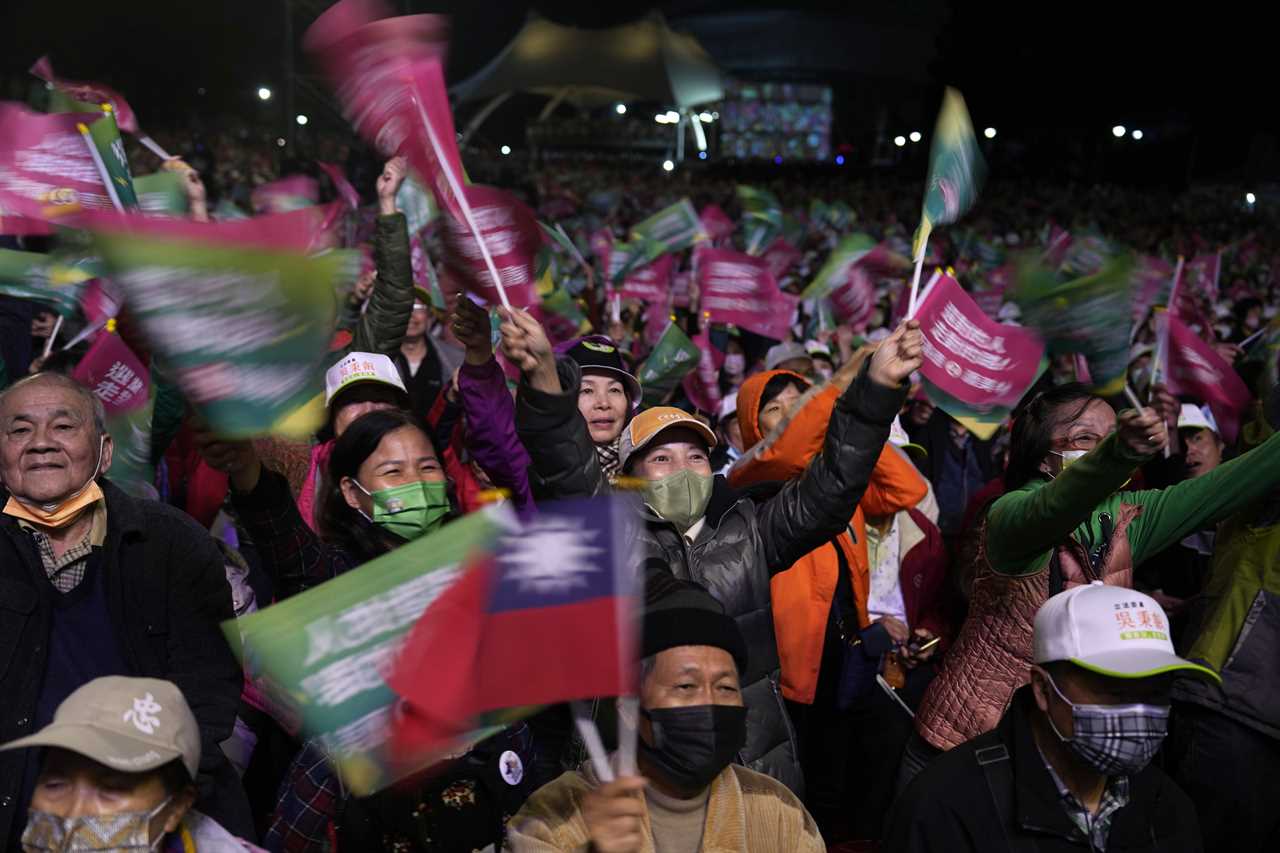
Taiwan faces a deluge of cyberattacks days before a critical presidential election with experts blaming China for an unprecedented and increasingly sophisticated level of interference.
The Jan. 13 election is the first real security test of 2024 — one of the biggest years for democratic elections in history — and underlines the rising cyber threat posed by China.
Google Cloud’s cyber threat intelligence firm Mandiant warned Tuesday of a “substantial volume of espionage operations” by China against Taiwan’s government, technology and critical infrastructure, according to a statement from Ben Read, the company’s head of cyber espionage analysis. “While this type of targeting has occurred for years, the volume over the past few months has been notable.”
Cyberattacks designed to overwhelm and crash networks in Taiwan have reached new levels in the final quarter of 2023, spiking 3,370 percent — a more than thirty fold increase — since the previous year, according to a new threat report from website security firm Cloudflare. While the report did not directly link the attacks to China, it did note that China is one of the largest sources of these types of attacks.
Taiwanese Vice President Lai Ching-te, who is running for president, has called attempted interference by China in this year’s election “the most serious ever.”
And the attacks are getting harder to gauge due to the rise of artificial intelligence-powered content, which allows cyberattacks and influence campaigns to flood the digital space at a much higher clip. China, a world-leader in new AI development and investment, appears to wield the tech with a clear, vested interest in influencing Taiwan’s future and the world’s opinion on the island’s sovereignty.
“The number and types of attacks China wages against Taiwan are very different from what they deploy to other nations,” former FBI Executive Assistant Director of Information and Technology James Turgal said in an interview.
Turgal calls the strategy an “embarrassment campaign,” where China infiltrates a system not to steal data but to post degrading statements that make Taipei’s institutions look bad.
“You basically manipulate and take over the website and put up anti-Taiwan statements on government sites that are forward-facing — which is a type of attack you don’t see against U.S. interests,” he said. “You saw a lot of those just before Russia entered Ukraine.”
Liu Pengyu, spokesperson for the Chinese Embassy in Washington, D.C., called the allegations of Chinese cyberattacks against Taiwan "clearly disinformation" in an emailed statement. "The Chinese government's position on cybersecurity is consistent and clear. We firmly oppose and combat cyberattacks of any kind," Liu said.
Liu added that Beijing hopes the ballot will "be conducive to cross-Strait peace and stability."
The Chinese government views Taiwan as a renegade province rather than an independent nation, and tensions have reached new heights under Chinese President Xi Jinping. The Chinese Ministry of Foreign Affairs regularly declines questions on Taiwan, citing the belief that Taiwan is not a foreign policy issue for China as the island belongs to the nation. The ministry, instead, has publicly accused the U.S. of being a “hacker empire.”
Chinese officials, during defense talks this week in Washington, said “China will not make any concession or compromise on the Taiwan question” and asked the U.S. to “not support Taiwan independence,” according to a statement from China’s defense ministry.
Taiwanese officials say the threats from China have grown increasingly intense. Authorities recently observed four alleged Chinese spy balloons directly above the island for the first time and are investigating alleged sponsored trips for hundreds of politicians to China aimed at swaying the vote toward Beijing, according to Reuters.
Roy Chun Lee, Taiwan’s deputy minister of foreign affairs, told POLITICO in November that Taiwan’s public sector sustains more than 13 million cyberattacks every month. Ahead of the election, he said, these attacks were only increasing.
“Every day there are attempts to find loopholes and backdoors in our system,” he said.
Because Taiwan votes on paper ballots, election equipment isn’t the main concern. Instead, U.S. officials and cybersecurity experts say Chinese cyberattacks have focused on behind-the-scenes optics to delegitimize Taiwan’s democratic stake in the island by weaving discord and disinformation.
Scott McConnell, a spokesperson for the Cybersecurity and Infrastructure Security Agency, which protects U.S. elections against cyber threats, declined to comment on any aid the agency is providing to Taiwan to defend against election threats. The White House did not respond to a request for comment on its coordination with Taiwan.
But the attacks have drawn its attention. President Joe Biden reportedly warned Xi in San Francisco last year not to get involved in Taiwan’s elections.
“I made it clear: I didn’t expect any interference, any at all,” Biden said at a press conference following the meeting. “Look, do I trust? You know, I trust but verify, as the old saying goes.”
Phelim Kine contributed to this report.
----------------------------------------
By: Maggie Miller and Joseph Gedeon
Title: Taiwan bombarded with cyberattacks ahead of election
Sourced From: www.politico.com/news/2024/01/11/taiwan-cyberattacks-election-china-00134841
Published Date: Thu, 11 Jan 2024 05:00:00 EST






